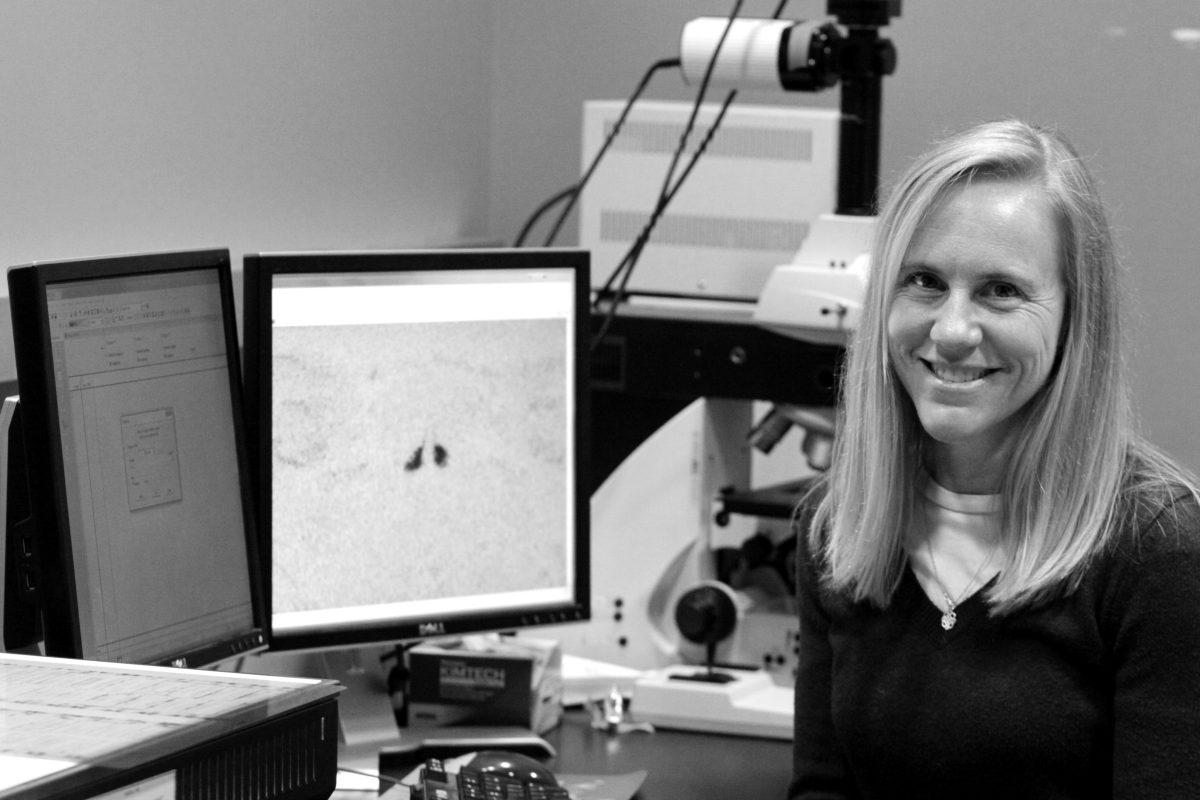
John Hunting
Heather Patisaul, an assistant professor of biology, has been working with harmful chemicals like BPA and is trying to create a system to catch them before they end up in the final product of manufactured goods.
They have been blamed for everything from the softened egg shells of birds to the obesity epidemic in the United States. They caused tens of thousands of infants in the 1950s to be born with underdeveloped limbs.
Endocrine disrupting compounds are a class of chemicals that often serve as cheap additives in many everyday products like plastics. The problem is they also have the ability to mimic natural hormones found in human and animal bodies, disrupting the hormone-regulating endocrine system. Current guidelines by the Food and Drug Administration and the Environmental Protection Agency do not subject new chemicals to testing in order to determine whether or not they have endocrine disrupting properties.
In order to combat the growing threat of EDCs to the public and the environment, Heather Patisaul, an assistant professor of biology at N.C. State, along with twenty other biologists and chemists around the country, has developed TiPED, a Tiered Protocol for Endocrine Disruption.
“TiPED is a design tool for chemists that helps guide the synthesis of safer chemicals. It does this by helping scientists identify and avoid chemicals likely to disrupt the endocrine system,” Patisaul said.
Also, as a tiered protocol system, every subsequent level of testing is more and more sensitive, allowing scientists to test their chemical at any or all of these levels with increasing precision.
“The protocol consists of five testing tiers, which range from computer modeling up to cell, tissue and whole animal based tests,” Patisaul said.
“I think this is a great achievement from a public health standpoint,” Filza Khan, a junior in biological sciences, said. “We have gotten caught up in a system where all newly synthesized chemicals are innocent until proven guilty. Unfortunately, the problem with this is that too many chemicals we encounter on a daily basis are guilty and we are the ones suffering because of it.”
It’s important to note that TiPED is not associated with either the FDA or EPA, and the testing of chemicals by corporations will be completely voluntary. However, the American public did have a remarkably swift response to BPA, or Bisphenol A, an endocrine disruptor found in the plastic of some water bottles. Therefore, Patisaul is not worried that corporations will shy away from possibly incriminating their own chemicals.
“It’s a buyer’s market and the consumer ultimately decides what makes it onto the shelves. As we saw with BPA recently, as soon as news organizations started reporting on the dangers of the chemical, sales of BPA-free water bottles sky-rocketed,” Patisaul said. “In the same way, we are confident that TiPED approved materials will become demanded by the public.”
“As soon as I heard that BPA-laced water bottles could cause cancer and many other diseases, I immediately stopped using them,” Asem Rahman, a graduate student in physiology and poultry science, said, agreeing with Patisaul. “It would be amazing if there was a system set up to protect the public and inform us about the potential dangers of the chemicals we use.”
However, commercial organizations that depend on EDCs as additives in their products continually defend them with their own industry sponsored scientific studies that combat the notion that these compounds are present in sufficient quantity so as to produce an effect in humans.
“TiPED can help put a stop to these arguments between corporations and public health agencies once and for all,” Patisaul said.
For more information about TiPED, visit their website at www.tipedinfo.com.